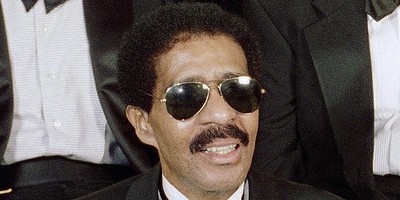Their quickest stereotype is that the vast majority of Americans traffic only in stereotypes. The hayseeds outside the elite media and universities don't have the brains to make nuanced distinctions between the Tsarnaev brothers and say, Muslim winners of the Nobel Peace Prize.
It's only a matter of time before the Hollywood elites chip in with their own brand of condescension. It's at the heart of the new movie "The Reluctant Fundamentalist." Kiefer Sutherland, who played terrorist-busting Jack Bauer on "24" for nine years, was thrilled to be in a movie that showed the response to 9/11 attacks had a "ripple effect" that resulted in "the things I hate the most: racism, prejudice, ignorance, fear."
Sutherland declares he wasn't fazed by racial profiling right after 9/11. "I was wrong. And when I read this [script], I knew that. And I hope the film has the same impact on an audience that it did on me when I read it (sic)."
Like many liberals who lead with guilt, Sutherland can't seem to contemplate that it's not about profiling for race or even for religion. It's about finding individuals that have made ideological connections with terrorists -- like Fort Hood killer Nidal Hasan.
Most terrorists are Muslim -- period. It raises a question liberals will never ask: How many people failed to see the threat in Dr. Hasan or the Tsarnaevs because they didn't want to look like bigots?
The script has strange blasts of illogic in it. The protagonist of this story is a Pakistani man who comes to America to attend Princeton and finds great success on Wall Street, only to return to Pakistan in bitter anger after 9/11. The Pakistani tells an American interviewer: "You picked a side after 9/11, I didn't have to. It was picked for me." He was somehow forced into an anti-American box, and isn't responsible for his bitterness and hatred. This character also admits that his first reaction to the World Trade Center attacks wasn't outrage, but awe -- an admiration of the audacity of the attack on America.
Recommended
The movie's director, Mira Nair, knows the liberal lingo when she sells her film as a "dialogue between America and Pakistan." Liberals love to call it a "dialogue" when they're shoving their views down your throat. If you choose not to accept these views -- why, you're intolerant. In Nair's case, she added, "We are riddled with Islamophobia, we are riddled with xenophobia in many, many ways." She claimed the film is "a bridge between two worlds that I know and I love, and desperately need to understand each other."
The heroes in "Zero Dark Thirty" didn't have a "dialogue" with Osama bin Laden, but they did display great knowledge of the country's traditions and culture. Our warriors on terrorism know Islam and Arabic and the Islamist agenda. They do not need any Hollywood lectures.
On The New York Times website, interviewer Shivani Vora asked Mira Nair about Boston.
"Several people were wrongly suspected of being the bombers, including the Indian-American student Sunil Tripathi, who was born in the U.S., but his parents were from India. Is this kind of false suspicion, a theme in the movie, still common more than a decade after 9/11?"
Well, of course! "We have not learned the lessons of 9/11. This wrongful suspicion, racial hatred and profiling is what I keep seeing," Nair harrumphed. "In the three days before the bombers were found, there was so much rampant rumor-mongering. The more this kind of knee-jerk profiling happens, the more America will be fragmented into an 'us and them' kind of a situation. We are seeing that the path that was taken post-9/11 has not contributed to any kind of understanding."
All that matters to Hollywood people is that they can parade their moral superiority over the country that makes them wealthy at the box office. Don't be reluctant to overlook "The Reluctant Fundamentalist," just as I am not reluctant to predict this movie is going to bomb.

























Join the conversation as a VIP Member